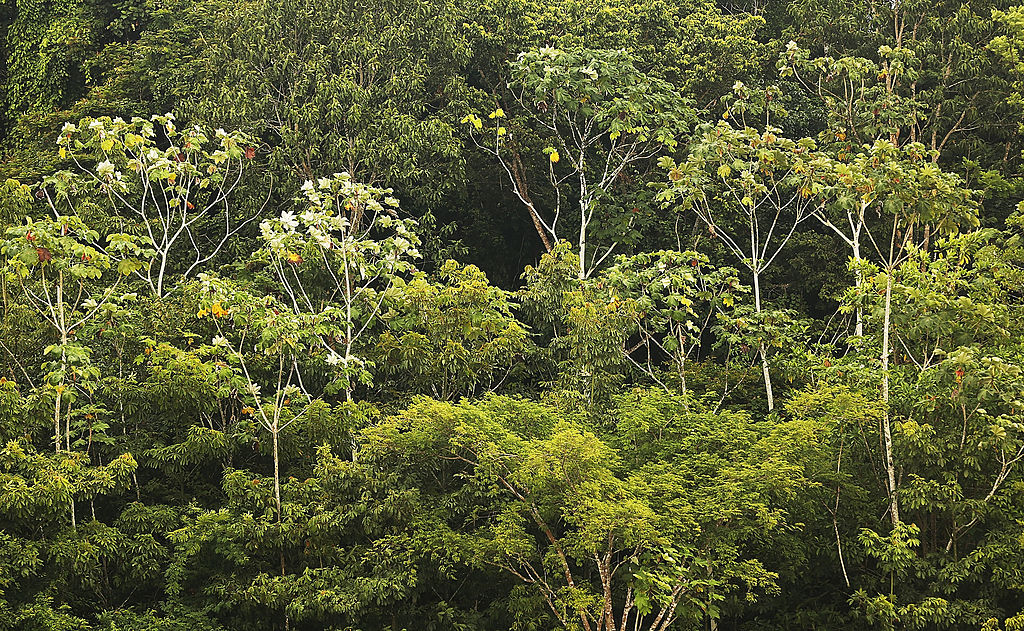Rancher discovers massive 'Stonehenge' in the depths of the Amazon


A free daily email with the biggest news stories of the day – and the best features from TheWeek.com
You are now subscribed
Your newsletter sign-up was successful
The discovery of a Stonehenge-like megalith in the Amazon rainforest has forced researchers to reassess what the region might have looked like 1,000 years ago, centuries before European conquest began, The New York Times reports. Prior to the discovery of the megalith, scholars had believed that the Amazon was relatively untouched by people other than small, nomadic populations. Taken alongside recent discoveries of complex infrastructure like roads, land carvings, and settlements, the megalith has led scholars to consider that instead, as many as 10 million people might have lived in the ancient Amazon.
The megalith was first discovered by a cattle rancher in the 1960s and appears to align with the sun's movement on the winter solstice, hinting at advances in astronomy. Ceramic burial urns were also found at the site, indicating it might have functioned as a cemetery. "We're starting to piece together the puzzle of the Amazon Basin's human history, and what we're finding in [the Brazilian state of] Amapá is absolutely fascinating," said Mariana Cabral, an archaeologist at the Federal University of Minas Gerais who has spent the last decade working at the site.
"It makes me wonder," said Lailson Camelo de Silva, the rancher who discovered the megalith and now serves as its caretaker. "What other secrets about our past are still hidden in Brazil's jungles?" Explore the megalith below. Jeva Lange
The Week
Escape your echo chamber. Get the facts behind the news, plus analysis from multiple perspectives.

Sign up for The Week's Free Newsletters
From our morning news briefing to a weekly Good News Newsletter, get the best of The Week delivered directly to your inbox.
From our morning news briefing to a weekly Good News Newsletter, get the best of The Week delivered directly to your inbox.
A free daily email with the biggest news stories of the day – and the best features from TheWeek.com
Jeva Lange was the executive editor at TheWeek.com. She formerly served as The Week's deputy editor and culture critic. She is also a contributor to Screen Slate, and her writing has appeared in The New York Daily News, The Awl, Vice, and Gothamist, among other publications. Jeva lives in New York City. Follow her on Twitter.
-
 What to know before filing your own taxes for the first time
What to know before filing your own taxes for the first timethe explainer Tackle this financial milestone with confidence
-
 The biggest box office flops of the 21st century
The biggest box office flops of the 21st centuryin depth Unnecessary remakes and turgid, expensive CGI-fests highlight this list of these most notorious box-office losers
-
 The 10 most infamous abductions in modern history
The 10 most infamous abductions in modern historyin depth The taking of Savannah Guthrie’s mother, Nancy, is the latest in a long string of high-profile kidnappings
-
 Nobody seems surprised Wagner's Prigozhin died under suspicious circumstances
Nobody seems surprised Wagner's Prigozhin died under suspicious circumstancesSpeed Read
-
 Western mountain climbers allegedly left Pakistani porter to die on K2
Western mountain climbers allegedly left Pakistani porter to die on K2Speed Read
-
 'Circular saw blades' divide controversial Rio Grande buoys installed by Texas governor
'Circular saw blades' divide controversial Rio Grande buoys installed by Texas governorSpeed Read
-
 Los Angeles city workers stage 1-day walkout over labor conditions
Los Angeles city workers stage 1-day walkout over labor conditionsSpeed Read
-
 Mega Millions jackpot climbs to an estimated $1.55 billion
Mega Millions jackpot climbs to an estimated $1.55 billionSpeed Read
-
 Bangladesh dealing with worst dengue fever outbreak on record
Bangladesh dealing with worst dengue fever outbreak on recordSpeed Read
-
 Glacial outburst flooding in Juneau destroys homes
Glacial outburst flooding in Juneau destroys homesSpeed Read
-
 Scotland seeking 'monster hunters' to search for fabled Loch Ness creature
Scotland seeking 'monster hunters' to search for fabled Loch Ness creatureSpeed Read
